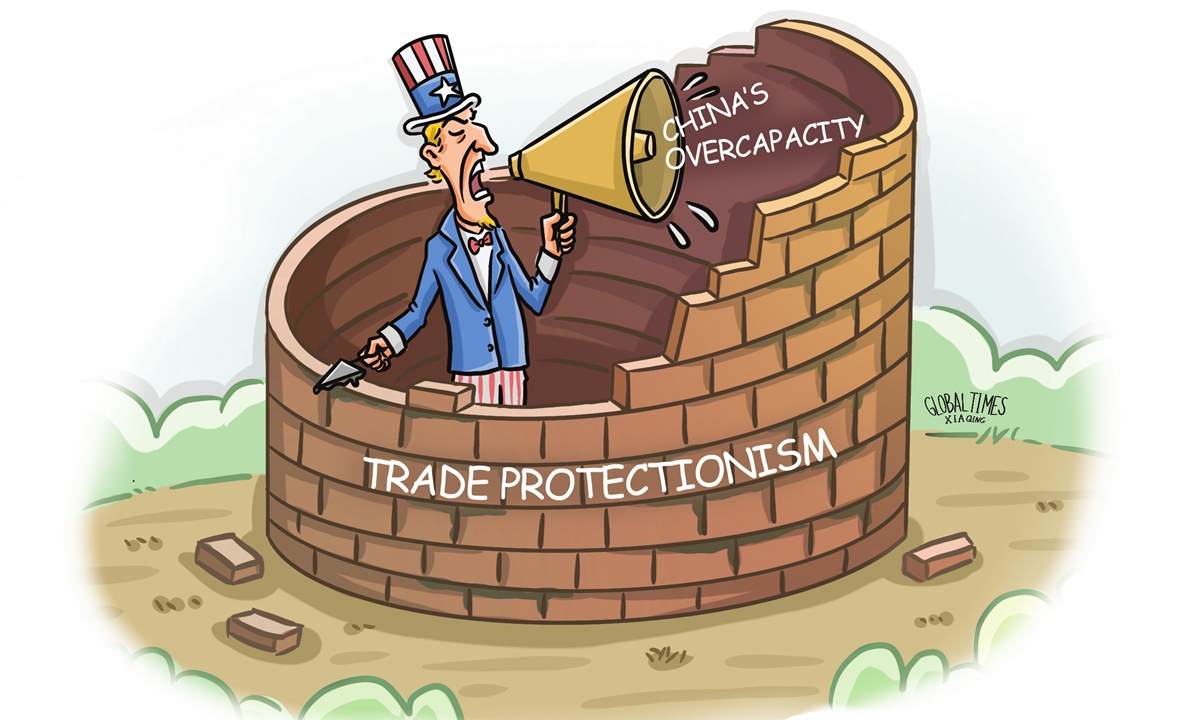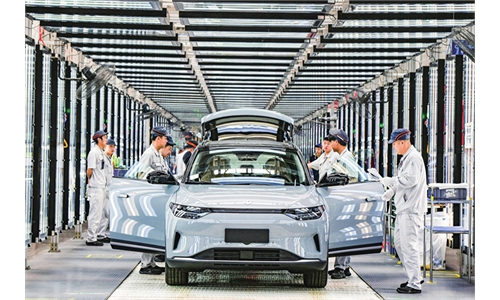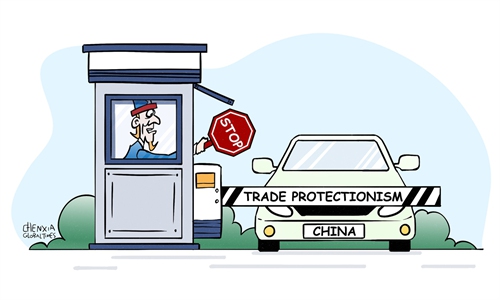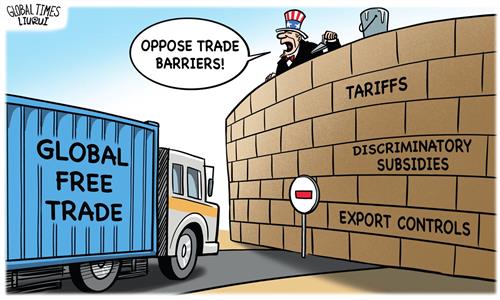

Illustration: Liu Rui/GT
The US has accused China of having "overcapacity" in new-energy industries, an area in which China is rapidly gaining strength, sparking global controversy. Yet, the US' flawed claim doesn't hold water when all relevant indicators are taken into account.The most direct indicators for measuring overcapacity should be underutilization of capacity, low efficiency and profit reduction. If an economy suffers from overcapacity, it means that it has underutilized capacity, a large amount of unsold inventory, insufficient business operations, and needs to lower prices and reduce profits in order to move inventory.
On the contrary, if the capacity utilization rate of an economy is relatively high or similar compared with other economies and product inventory is decreasing while sales are growing rapidly, this situation cannot be called overcapacity.
Currently, the capacity utilization rate of China's industrial enterprises and the US, which accuses China of "overcapacity," both sits at around 75 percent. In addition, idle inventory in China is on a downward trend. China's manufacturing exports are also continuing to grow. Industries such as new-energy vehicles and photovoltaics are experiencing high export growth rates, with double-digit increases maintained in the first four months.
In terms of profit margins, in the first three months of this year, the profit of China's industrial enterprises above designated size increased by 4.3 percent compared to the same period last year. This indicates that China is not selling products at unreasonable prices to clear inventory.
Looking from all these aspects, the data simply does not support the claim that China is plagued by "overcapacity."
The fact is that China does not have an "overcapacity" issue as accused by the US. Instead, China has established a strong competitive edge across new-energy industries. China's companies have consolidated their advantages, especially in the solar panel and electric vehicle industries, largely outpacing American companies. This is the real issue for the US.
The competitiveness of Chinese enterprises and industries mainly comes from the high efficiency and hard-working spirit demonstrated by Chinese employees and entrepreneurs. The Chinese economy, an enormous system, has developed unparalleled economic scale in the world, which is the root of China's economic and industrial competitiveness and efficiency.
As American industries and companies cannot compete with their Chinese counterparts, the US hopes to use any available unfair tactic to undermine China. However, the US government's economic policies do not conform to objective economic laws. The US' attempts to attribute China's success to subsidies and other factors will be futile in hindering the progress of Chinese industries.
The series of economic policies of the Biden administration are not in line with objective economic laws and counterproductive in advancing the development of its manufacturing industry, only adding obstacles to the normal operation and development of its manufacturing industry and companies. The Biden administration's efforts to revive manufacturing, reindustrialize, and achieve other goals will not be able to make real progress in this manner.
The emergence of the US' so-called "overcapacity" rhetoric against China's new-energy industries is also because the US needs to concoct a pretext to justify taking hostile measures and protectionist approaches against Chinese industries. The Biden administration has announced new tariffs as high as 100 percent on Chinese electric vehicles and additional import taxes on other Chinese goods. The Biden administration has been justifying this move with hype of "overcapacity" and "unfair competition."
The US accuses China of "overcapacity" while putting in place $370 billion in subsidies to the clean energy industry through its Inflation Reduction Act, which is a typical double-standard approach. If the US goes further in the wrong direction of protectionism and politicizing economic issues, it will only create more disruptions to the development of its economy and industries.
The US sees China as its top strategic rival rather than cooperating partner, but China is willing to engage in fair competition with the US. The US was once a great country. Hopefully, the US can return to fair and free competition and engage in win-win cooperation with China.
The author is a research fellow at the Chinese Academy of International Trade and Economic Cooperation. bizopinion@globaltimes.com.cn



